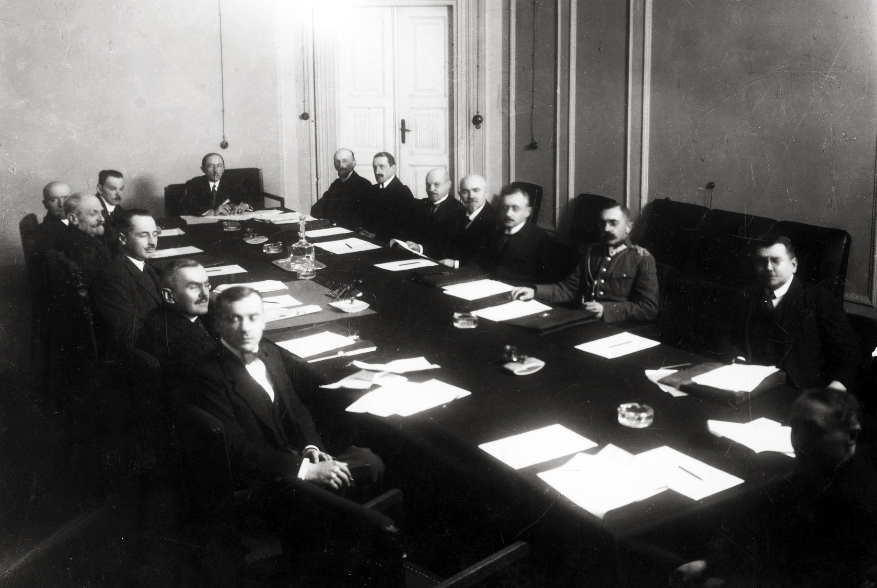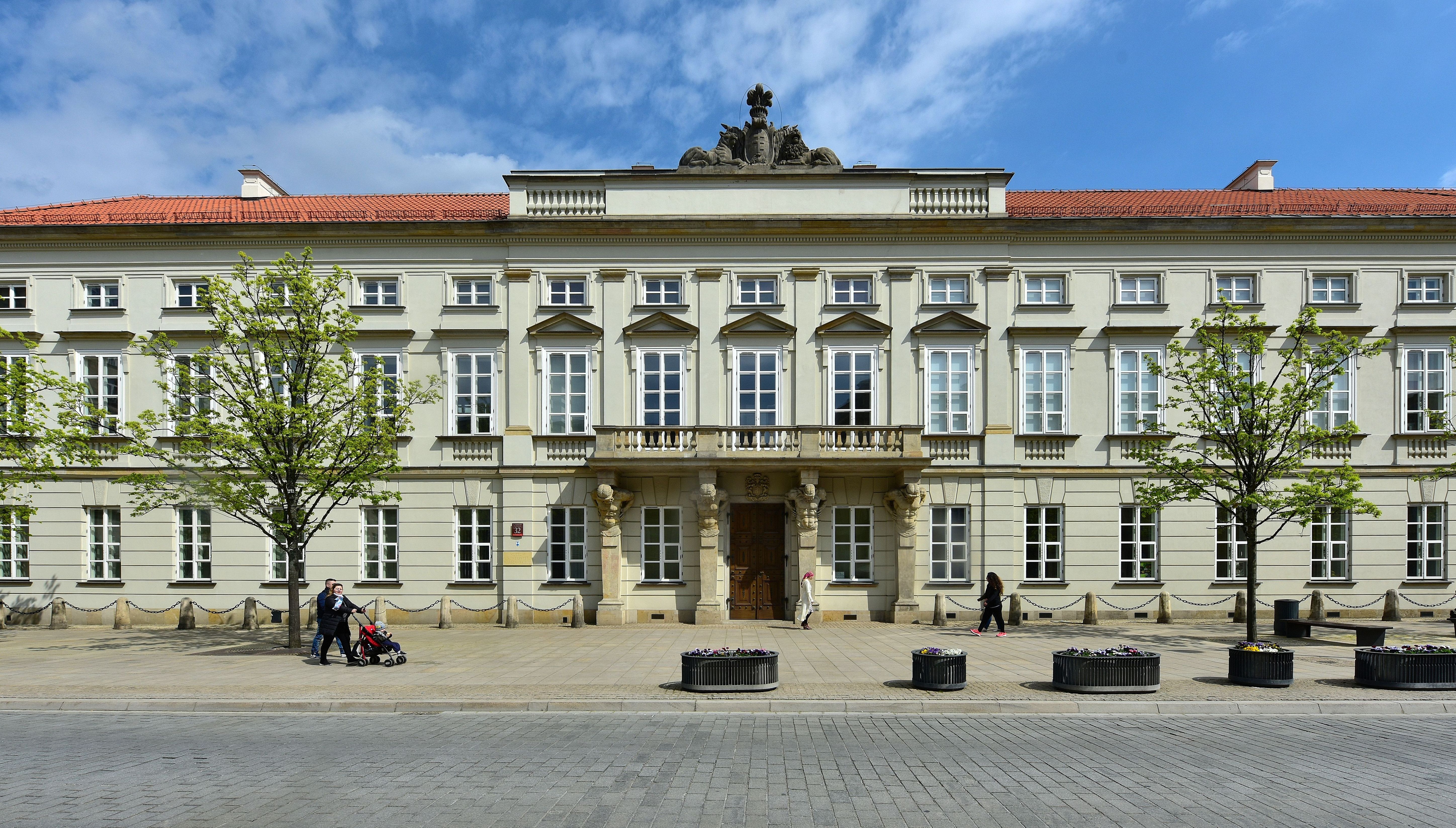|
Janusz Jędrzejewicz
Janusz Jędrzejewicz (; 21 June 1885 – 16 March 1951) was a Polish politician and educator, a leader of the Sanacja political group, and 24th Prime Minister of Poland from 1933 to 1934. Life He joined Józef Piłsudski's Polish Socialist Party in 1904. After World War I broke out, he joined the Polish Legions and the Polish Military Organization. In 1918 he joined the Polish Army and served as aide to Piłsudski. In 1919, he was transferred to Section II (Intelligence) at the Lithuanian-Belarusian Front Headquarters, and later to the General Staff. After the Polish–Soviet War, in 1923 Jędrzejewicz became a politician. He was elected a deputy to the Polish Sejm (1928–35) and later a senator. In 1930–1935 he was vice-president of the Nonpartisan Bloc for Cooperation with the Government (BBWR). From 12 August 1931, to 22 February 1934, he served as minister of education. He introduced a reform of Poland's educational system that came to be named, after him, "Jędrzeje ... [...More Info...] [...Related Items...] OR: [Wikipedia] [Google] [Baidu] |
Prime Minister Of Poland
The President of the Council of Ministers ( pl, Prezes Rady Ministrów, lit=Chairman of the Council of Ministers), colloquially referred to as the prime minister (), is the head of the cabinet and the head of government of Poland. The responsibilities and traditions of the office stem from the creation of the contemporary Polish state, and the office is defined in the Constitution of 1997. According to the Constitution, the president nominates and appoints the prime minister, who will then propose the composition of the Cabinet. Fourteen days following their appointment, the prime minister must submit a programme outlining the government's agenda to the Sejm, requiring a vote of confidence.Article 154, para. 2 Conflicts stemming from both interest and powers have arisen between the offices of President and Prime Minister in the past. The incumbent and seventeenth prime minister is Mateusz Morawiecki of the Law and Justice party. Morawiecki replaced Prime Minister Beata Szy ... [...More Info...] [...Related Items...] OR: [Wikipedia] [Google] [Baidu] |
Polish Military Organization
The Polish Military Organisation, PMO ( pl, Polska Organizacja Wojskowa, POW) was a secret military organization which formed during World War I (1914-1918). Józef Piłsudski founded the group in August 1914; it adopted the name ''POW'' in November 1914. It aimed to gather intelligence and to sabotage the enemies of the Polish people. Piłsudski used the POW to act independently from his cautious Austro-Hungarian supporters, and it became an important, if somewhat lesser known, counterpart to the Polish Legions. Its targets included the Russian Empire in the early phase of the war, and the German Empire later. Its membership rose from a few hundred in 1914 to over 30,000 in 1918. History Intelligence and training The Polish Military Organization (PMO) can be traced to formations of August 1914 or even earlier, but it was officially founded in November 1914, as a merger of two previously-existing youth para-military organisations: the Drużyny Strzeleckie and the Związek S ... [...More Info...] [...Related Items...] OR: [Wikipedia] [Google] [Baidu] |
Invasion Of Poland
The invasion of Poland (1 September – 6 October 1939) was a joint attack on the Republic of Poland by Nazi Germany and the Soviet Union which marked the beginning of World War II. The German invasion began on 1 September 1939, one week after the signing of the Molotov–Ribbentrop Pact between Germany and the Soviet Union, and one day after the Supreme Soviet of the Soviet Union had approved the pact. The Soviets invaded Poland on 17 September. The campaign ended on 6 October with Germany and the Soviet Union dividing and annexing the whole of Poland under the terms of the German–Soviet Frontier Treaty. The invasion is also known in Poland as the September campaign ( pl, kampania wrześniowa) or 1939 defensive war ( pl, wojna obronna 1939 roku, links=no) and known in Germany as the Poland campaign (german: Überfall auf Polen, Polenfeldzug). German forces invaded Poland from the north, south, and west the morning after the Gleiwitz incident. Slovak military forces ad ... [...More Info...] [...Related Items...] OR: [Wikipedia] [Google] [Baidu] |
Soviet Union
The Soviet Union,. officially the Union of Soviet Socialist Republics. (USSR),. was a transcontinental country that spanned much of Eurasia from 1922 to 1991. A flagship communist state, it was nominally a federal union of fifteen national republics; in practice, both its government and its economy were highly centralized until its final years. It was a one-party state governed by the Communist Party of the Soviet Union, with the city of Moscow serving as its capital as well as that of its largest and most populous republic: the Russian SFSR. Other major cities included Leningrad (Russian SFSR), Kiev (Ukrainian SSR), Minsk (Byelorussian SSR), Tashkent (Uzbek SSR), Alma-Ata (Kazakh SSR), and Novosibirsk (Russian SFSR). It was the largest country in the world, covering over and spanning eleven time zones. The country's roots lay in the October Revolution of 1917, when the Bolsheviks, under the leadership of Vladimir Lenin, overthrew the Russian Provisional Government tha ... [...More Info...] [...Related Items...] OR: [Wikipedia] [Google] [Baidu] |
Camp Of National Unity
''Obóz Zjednoczenia Narodowego'' (, en, Camp of National Unity; abbreviated "''OZN''"; and often called "''Ozon''" (Polish for "ozone") was a Polish political party founded in 1937 by sections of the leadership in the Sanacja movement. A year after the 1935 death of Poland's Chief of State Marshal Józef Piłsudski, in mid-1936, one of his followers, Marshal Edward Rydz-Śmigły, attempted to unite the various government factions under his leadership. The attempt failed as another (opposing) Sanacja politician, President Ignacy Mościcki, likewise had a large following; nevertheless, substantial numbers of people did throw their lot in with Rydz-Śmigły. On February 21, 1937, diplomat and Colonel Adam Koc formally announced the formation of ''OZN''. Its stated aims were to improve Poland's national defense and to safeguard the April 1935 Constitution. ''OZN'' was strongly pro-military, and its politicians sought to portray Marshal Rydz-Śmigły as Marshal Józef Piłsudski ... [...More Info...] [...Related Items...] OR: [Wikipedia] [Google] [Baidu] |
April Constitution Of Poland
The April Constitution of Poland ( pl, Ustawa konstytucyjna 23 IV 1935 or ''Konstytucja kwietniowa'') was the general law passed by the act of the Polish Sejm on 23 April 1935. It introduced in the Second Polish Republic a presidential system with certain elements of authoritarianism. Summary The act introduced the idea that the state is a common good of all the citizens. It also limited the powers of the Sejm and Senate while strengthening the authority of the President of Poland. The President was responsible for choosing the members of the government, which, in turn, was responsible to the parliament. He also had the right to dismiss the parliament before the end of term and named a third of the senators, the commander-in-chief of the Polish Army, and the General Inspector of the Armed Forces.Seidner, Stanley S. ''Marshal Edward Śmigły-Rydz Rydz and the Defense of Poland'', New York, 1978. He also had the right to issue decrees and veto acts passed by the Sejm non-cons ... [...More Info...] [...Related Items...] OR: [Wikipedia] [Google] [Baidu] |
Polish Academy Of Literature
The Polish Academy of Literature ( pl, Polska Akademia Literatury, PAL) was one of the most important state institutions of literary life in the Second Polish Republic, operating between 1933 and 1939 with the headquarters in Warsaw. It was founded by the decree of the Council of Ministers of the Republic ( Rada Ministrów RP). The academy was the highest opinion-forming authority in the country, in charge of all aspects of promoting and honoring the most outstanding contemporary achievements of Polish literature. According to its own statute, the main objective of the academy was to raise the quality level of Poland's publishing, while working in conjunction with the government efforts and NGO endeavors focused on the advancement of Polish culture and art in general. The century of foreign Partitions of Poland, ending in 1918, was marked by the forcible suppression of Polish education, language and religion under Prussian (and later German rule, see Kulturkampf),Maciej Janowski ... [...More Info...] [...Related Items...] OR: [Wikipedia] [Google] [Baidu] |
Jędrzejewicz Reform
Jędrzejewicz reform was a major reform of the education in the Second Polish Republic, implemented in 1932. It reorganized the structure of Polish education, which diverged into three different systems during the era of partitions of Poland.Jarosław Jastrzębski, "Reforma Jędrzejewicza w państwowym szkolnictwie akademickim II Rzeczypospolitej. Wzmocnienie prerogatyw władz państwowych", ZESZYTY NAUKOWE UNIWERSYTETU JAGIELLOŃSKIEGO MCCCXVIII – 2011,Prace Historyczne z. 138, pp. 159-176download the pdf file It was named after Minister of Education, Janusz Jędrzejewicz who supervised the reform. The education reform was approved by the Sejm on March 11, 1932 On March 15, 1933 the reform was extended to encompass the higher education.Ustawa z dnia 15 marca 1933 r. o szkołach akademickich – Dz.U. z 1933 r. Nr 29, poz. 247. Ustawa z dnia 15 marca 1933 r. o szkołach akademickich The Jędrzejewicz reform received controversial recognition. From one hand, it introduced com ... [...More Info...] [...Related Items...] OR: [Wikipedia] [Google] [Baidu] |
Nonpartisan Bloc For Cooperation With The Government
The Nonpartisan Bloc for Cooperation with the Government ( pl, Bezpartyjny Blok Współpracy z Rządem, ; abbreviated ''BBWR'') was a "non-political" organization in the interwar Second Polish Republic, in 1928–35. It was closely affiliated with Józef Piłsudski and his Sanation movement. Its major activists included Walery Sławek, Kazimierz Bartel, Kazimierz Świtalski, Aleksander Prystor, Józef Beck, Janusz Jędrzejewicz, Wacław Jędrzejewicz, Adam Koc, Leon Kozłowski, Ignacy Matuszewski, Bogusław Miedziński, Bronisław Pieracki, Adam Skwarczyński, and Janusz Franciszek Radziwiłł. In 1993 Lech Wałęsa, then President of Poland, founded a Nonpartisan Bloc for Support of Reforms, in Polish ''Bezpartyjny Blok Wspierania Reform'', likewise abbreviated "''BBWR''," which was meant to revive some of the traditions of the prewar "BBWR" and to form a parliamentary grouping explicitly supportive of President Wałęsa. In the 1993 elections, the new "BBWR" achieved ... [...More Info...] [...Related Items...] OR: [Wikipedia] [Google] [Baidu] |
Sejm
The Sejm (English: , Polish: ), officially known as the Sejm of the Republic of Poland (Polish: ''Sejm Rzeczypospolitej Polskiej''), is the lower house of the bicameral parliament of Poland. The Sejm has been the highest governing body of the Third Polish Republic since the transition of government in 1989. Along with the upper house of parliament, the Senate, it forms the national legislature in Poland known as National Assembly ( pl, Zgromadzenie Narodowe). The Sejm is composed of 460 deputies (singular ''deputowany'' or ''poseł'' – "envoy") elected every four years by a universal ballot. The Sejm is presided over by a speaker called the "Marshal of the Sejm" (''Marszałek Sejmu''). In the Kingdom of Poland, the term "''Sejm''" referred to an entire two- chamber parliament, comprising the Chamber of Deputies ( pl, Izba Poselska), the Senate and the King. It was thus a three-estate parliament. The 1573 Henrician Articles strengthened the assembly's jurisdiction, makin ... [...More Info...] [...Related Items...] OR: [Wikipedia] [Google] [Baidu] |
Polish–Soviet War
The Polish–Soviet War (Polish–Bolshevik War, Polish–Soviet War, Polish–Russian War 1919–1921) * russian: Советско-польская война (''Sovetsko-polskaya voyna'', Soviet-Polish War), Польский фронт (''Polsky front'', Polish Front) (late autumn 1918 / 14 February 1919 – 18 March 1921) was primarily fought between the Second Polish Republic and the Russian Soviet Federative Socialist Republic in the aftermath of World War I and the Russian Revolution, on territories which were formerly held by the Russian Empire and the Austro-Hungarian Empire. On 13 November 1918, after the collapse of the Central Powers and the Armistice of 11 November 1918, Vladimir Lenin's Russia annulled the Treaty of Brest-Litovsk (which it had signed with the Central Powers in March 1918) and started moving forces in the western direction to recover and secure the ''Ober Ost'' regions vacated by the German forces that the Russian state had lost under the trea ... [...More Info...] [...Related Items...] OR: [Wikipedia] [Google] [Baidu] |


.jpg)


